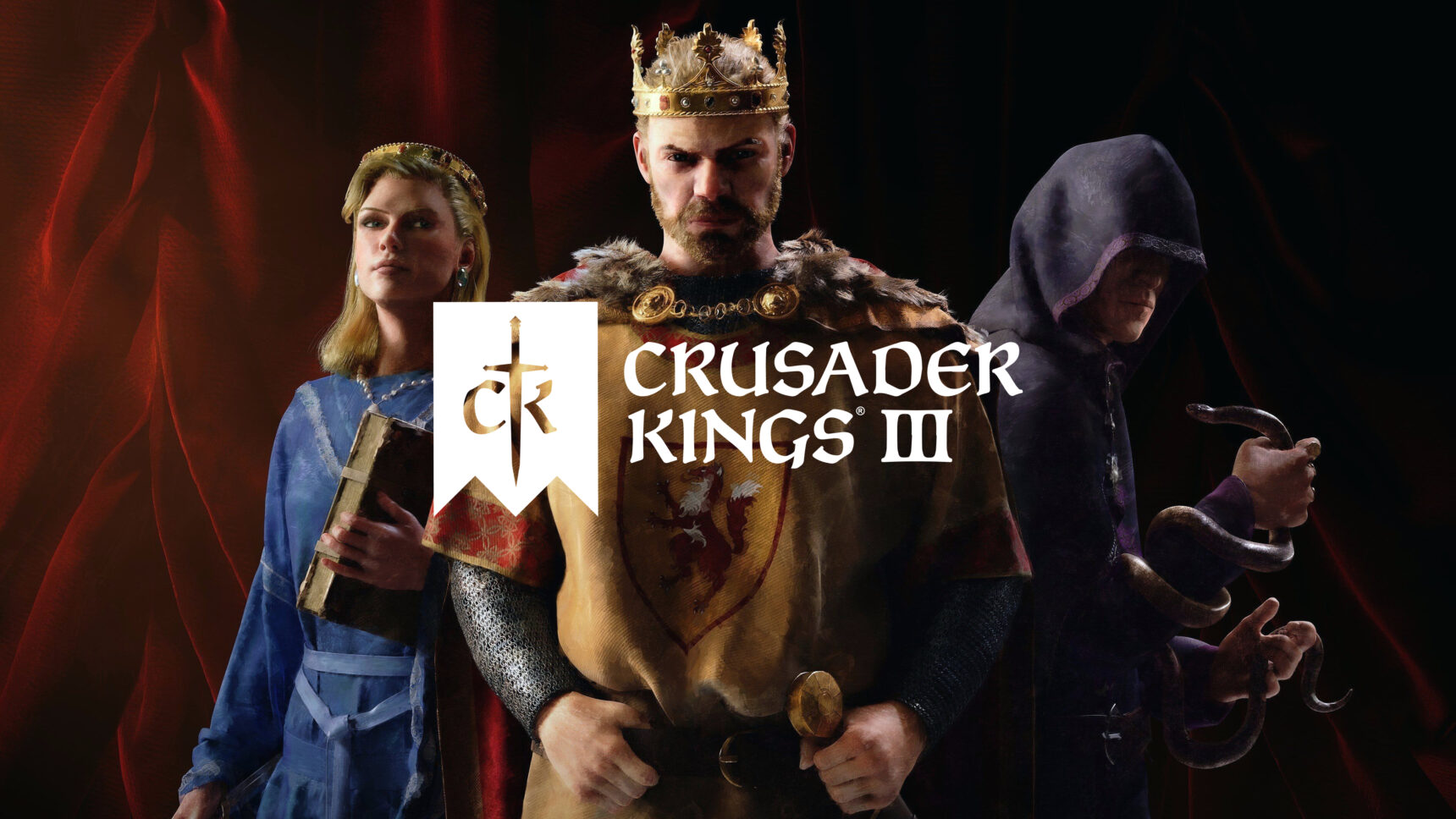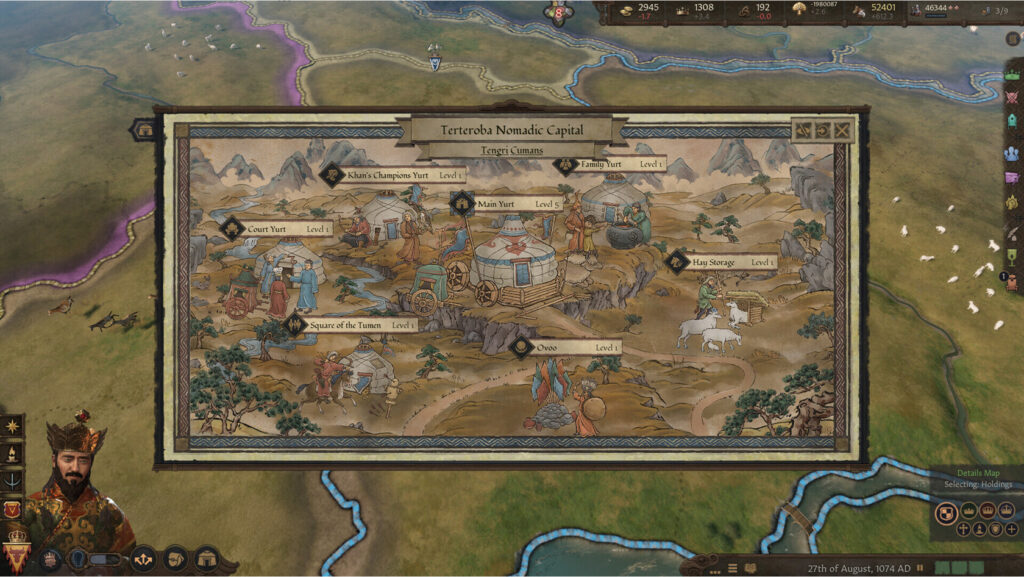Crusader Kings III console porting & performance optimization

The most popular articles
For more than a year, we’ve had the pleasure of working with Paradox Interactive—maker of some of the best strategy games on the market—on Crusader Kings III.
Crusader Kings III is a grand-strategy role-playing game set in the Middle Ages. The acclaimed franchise goes all the way back to 2004 when the first game was released, so it has an incredibly committed, active fanbase.
Those fans have high standards. This is testament to the bar that has been set by Paradox over the last 21 years. So when elements of Crusader Kings III don’t meet these lofty expectations, they are vocal about the franchise they love so much.
The console version of Crusader Kings III has faced some technical challenges in recent years which have impacted the player experience. Also, console players often had to wait longer than their PC counterparts for new content and updates due to platform-specific constraints.
That’s where our Technology and Game Development teams came in.
The challenge
Our objective was originally to port two DLCs onto consoles, which tend to have less shared RAM/GRAM than higher-end gaming PCs. Ultimately, though, we had to optimize the console version of Crusader Kings III in its entirety, without compromising gameplay performance or visual fidelity, in order for the game with the DLCs to run without technical hiccups.
Each Crusader Kings III DLC is a large expansion pack, so they demand a lot of the hardware on which they operate. Once the DLCs had been added to the game on consoles, it became clear that the whole game had to be optimized—to make it work without technical issues or without compromising on some gameplay features, like the game-speed system (which was originally scaled back on consoles to save memory, frustrating players who wanted to get to major in-game events quicker, which PC players were able to do).
These technical hurdles were a big reason why extra Crusader Kings III content has been slow to roll out on consoles. This was another challenge for us to help the partner overcome: increase the number of DLCs released on consoles per year from at least one to at least three.
To summarize, the main challenges for Room 8 Group were:
- Optimize the console version of Crusader Kings III.
- Port DLCs from PC to console while maintaining high technical standards and incorporating intuitive UI/UX.
- Improve the workflow system so that DLCs could be released much more regularly than before.
What we did
How we optimized Crusader Kings III on consoles
Consoles have stricter technical limitations due to smaller RAM and GRAM. The game build we encountered, originally made for PCs, was already consuming about 8GB (up to 10-12GB at the end of the game), and was unstable on consoles. On top of that, each new DLC we integrated consumed 0.5-1.5GB each. We were forced to make deep and difficult memory optimization and refactoring decisions for many main game systems, so that we could ‘teach’ them how to work with limited memory. We also had to aggressively unload unused resources.
How we improved the game-speed and save systems
Simulation speed is an important feature in a game like Crusader Kings III, in part because a faster game allows players to reach key in-game events quicker if they so choose. Unfortunately, due to crashes and high memory consumption, this functionality was severely limited before, which players did not like. To unlock control of the game speed on consoles, we fixed dozens of issues with resource consumption and the save system.
On the save system: In Crusader Kings III, players can choose to autosave every game day, week, or month, which with increased game speed can occur every few seconds. At the same time, each game save is large—hundreds of megabytes—which was causing crashes and losses of game saves. As such, we deeply refactored and optimized this system and added appropriate restrictions to eliminate technical issues and improve the player experience.

How we incorporated new UI/UX features for DLCs
A game like Crusader Kings III, which requires so much strategy and has so many moving parts, has countless screens and widgets. This is much easier to navigate with a mouse and keyboard than with a console gamepad. As such, overhauling the UI/UX was no small task.
Each of the DLCs also came with new game mechanics, UI screens, and much more, which affected existing functionality. An extensive UI/UX/gameplay adaptation was required to integrate all of these newly added features—which we delivered.
How we brought new content to console players faster
The Crusader Kings community could see that the PC version was far ahead of console in terms of the number of DLCs released, and they wanted updates faster. Also, patches were often delivered late on consoles. We have accelerated this cycle significantly: we released three DLCs during 2024, all of which were successful and provided stable builds. To do this, we worked with Paradox to set up a rapid development cycle, with overlapping stages and the flexible migration of team members (which positioned us to better manage priorities). We’ve also published several patches in response to player feedback.
How we optimized the network for smoother online play
We fixed several critical bugs, including network desynchronization issues, which were causing problems during online gameplay. These fixes dramatically improved the multiplayer experience and ensured smoother game sessions.
How we helped with certification and post-release support
Once the game builds were ready for release, we validated them against certification requirements, ensuring the game passed first-party tests without any issues. After release, we collected feedback from players and released patches to fix any bugs or performance issues.
The outcome
We’re proud to say that the console version of Crusader Kings III now maximizes the potential of Paradox’s exceptional grand-strategy title. Its controls are more intuitive, it has far fewer technical issues, and three DLC expansions—Friends & Foes, Tours & Tournaments, and Wards & Wardens—are now playable and have been integrated into the base game with updated UI, UX, and gameplay elements.

For Room 8 Group, this has been an incredibly rewarding project. Our Technology and Game Development teams developed their understanding of the Clausewitz game engine and console-specific subsystems, which will be valuable for future projects. We also streamlined our backend processes, improving our ability to handle continuous build packaging and validation for console releases.
We also feel gratified to have worked with the Crusader Kings fans. Since we’ve been working on Crusader Kings III, the community has been very pleased with our work: the average user rating on both PlayStation and Xbox has increased from around three stars to four or above. It has been our honor to serve them!
But our work is not yet done. This is an ongoing partnership—we will work on three more Crusader Kings III DLCs this year and continue optimizing the game for consoles—which is testament to our technical excellence and leadership.
More Room 8 Group-Paradox Interactive news is coming soon. In the meantime: may your vassals be loyal, and your secrets buried…




